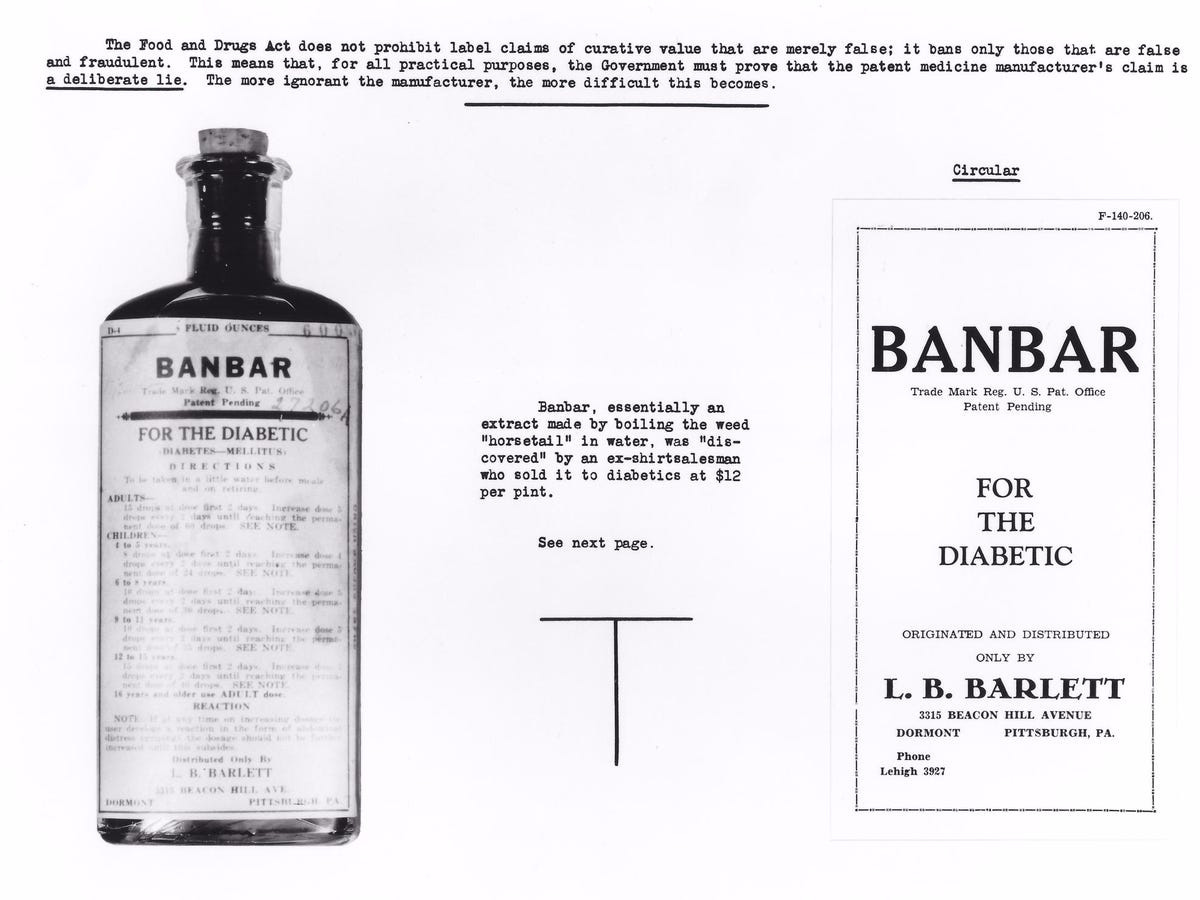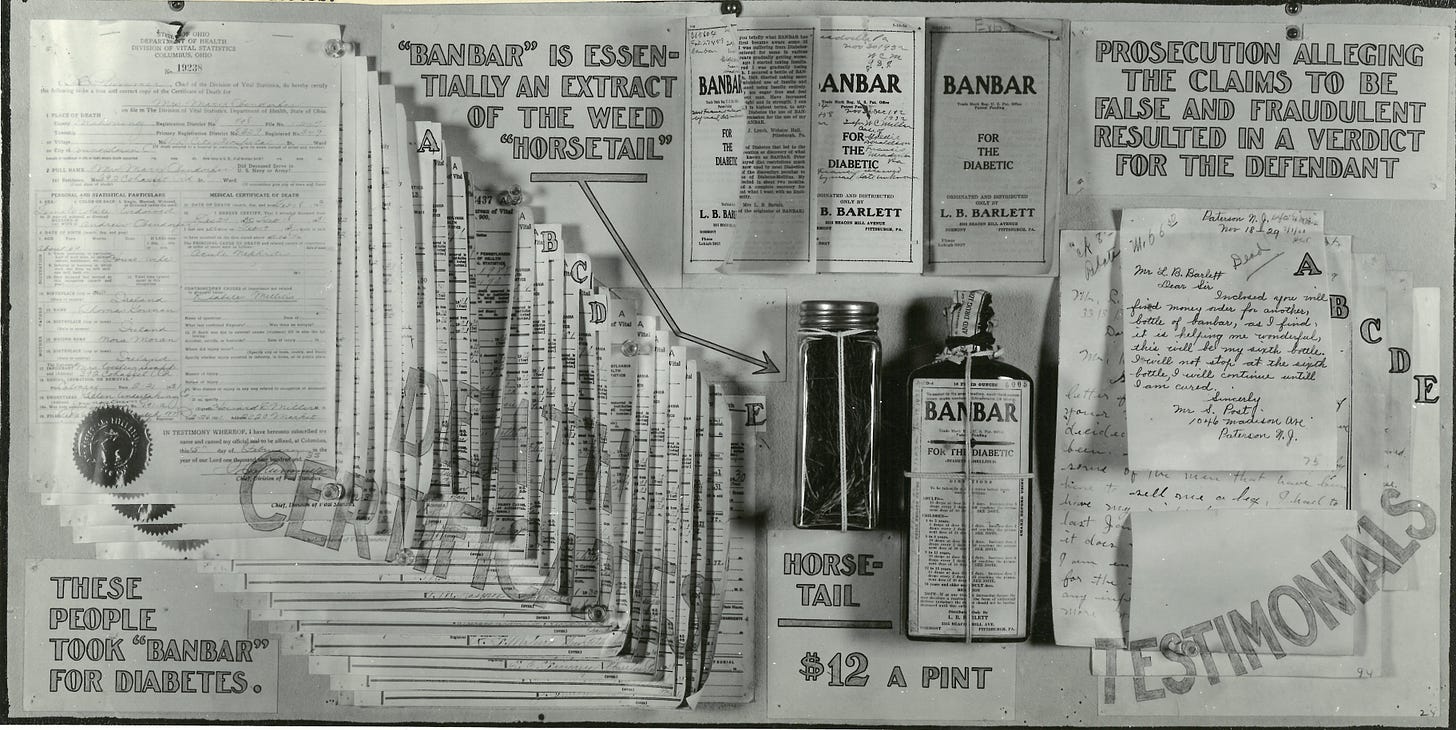
By the 1920s, insulin had changed diabetes from a grave illness to one that could be managed into old age. Gone were the days when children with diabetes would die wasting away to keep their blood sugar low. One might assume a clear, effective treatment would remain popular, but in some places, a new treatment began replacing insulin: Banbar.
Banbar was useless in terms of treatment, but it was also dangerous because it mostly contained milk sugar and equisetum (horsetail). The sugar was especially worrisome for people who would likely have been without insulin since people had begun taking Banbar instead of insulin. The FDA seized the product under the 1912 Sherley Amendment, which disallowed fraudulent claims but required a heavy lift. One had to prove intent to deceive.
People were not pleased. Who was the FDA to take away their treatment in this land of the free, especially when they felt it made them better? The maker of Banbar took the FDA to court. He brought rave reviews from his many happy customers, which he argued showed that his product was working, even if the gentleman at the FDA disagreed.
Perhaps because people taking Banbar would be unwell, government officials randomly sampled the letters and followed them back to customers.
When the officials finished tracking down the letter writers, they had a display to show the court, death certificates paired with a corresponding letter each. The happy customers had died without real treatment. Although the FDA had clearly shown the drug was ineffective and leading to preventable deaths, it lost the case because the agency could not prove that the maker of Banbar intended to mislead his customers.
Not until 1938 did the FDA finally gain the power needed to prevent another Banbar-like scenario. And that is the story of how the 1938 Food, Drug, and Cosmetic Act came to be. For all its faults, the FDA tried to stop Banbar, and it’s the reason Thalidomide was never approved in the United States. Imperfect though it is, we can feel quite sure that we would be worse off without it.



